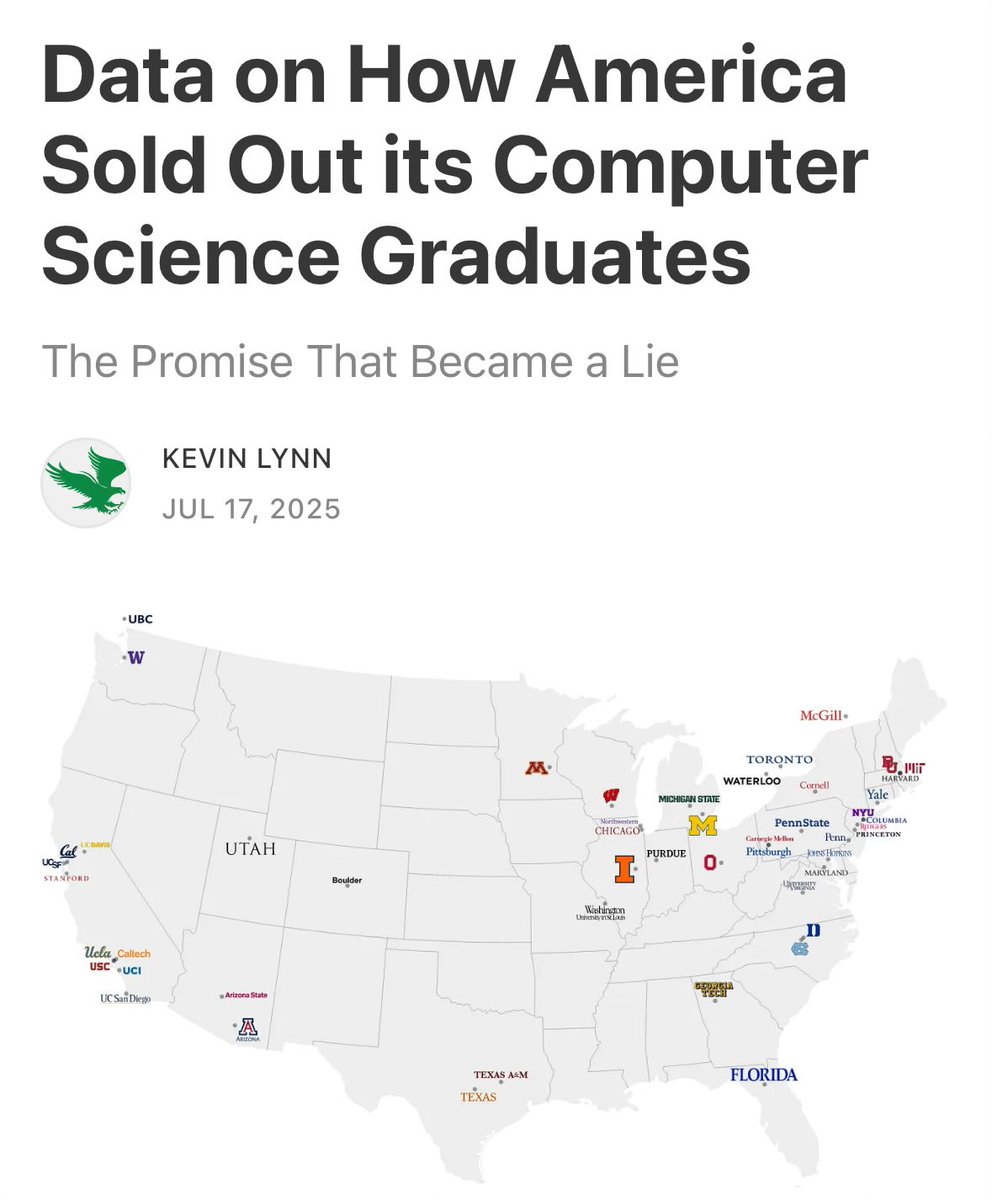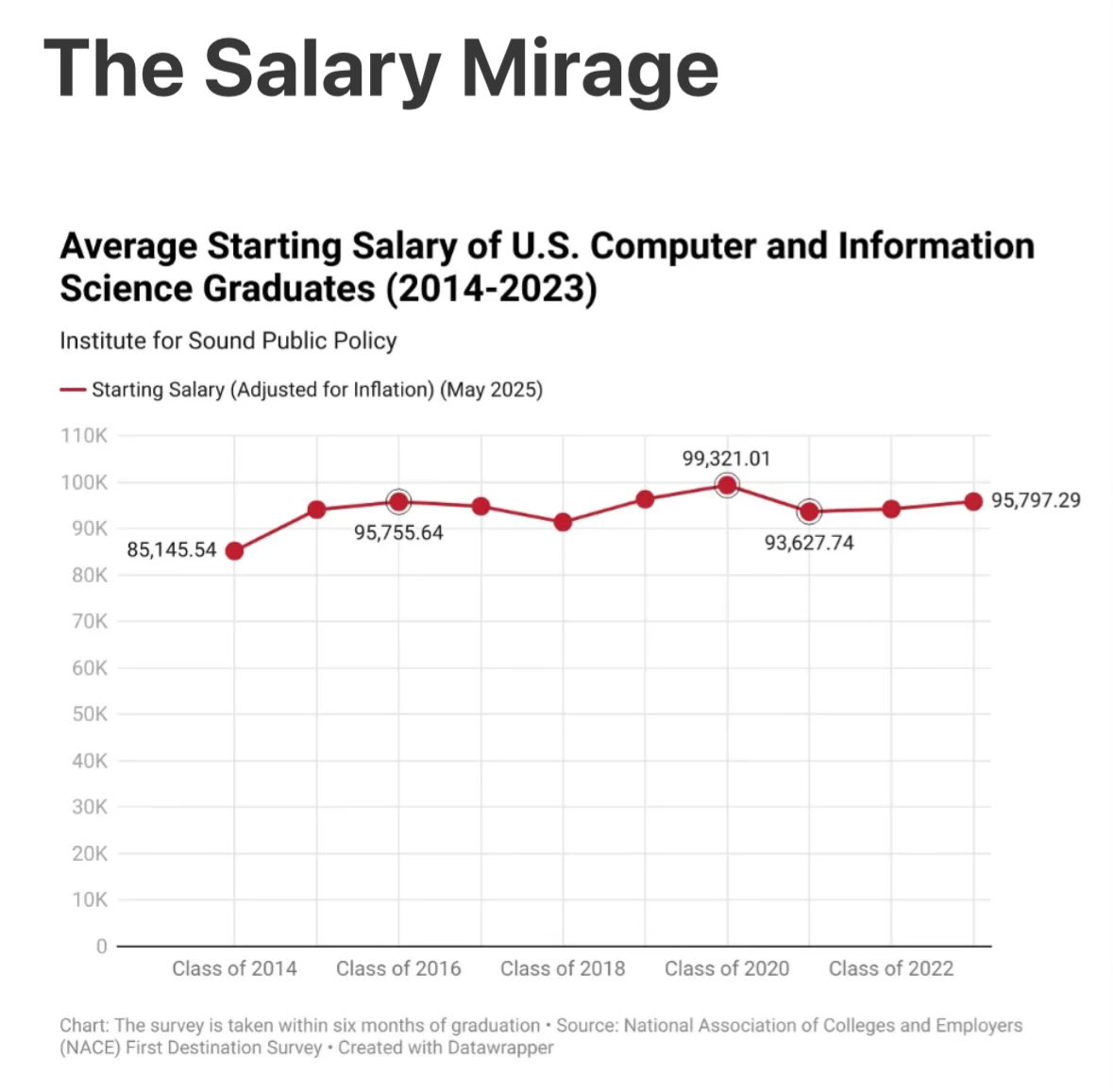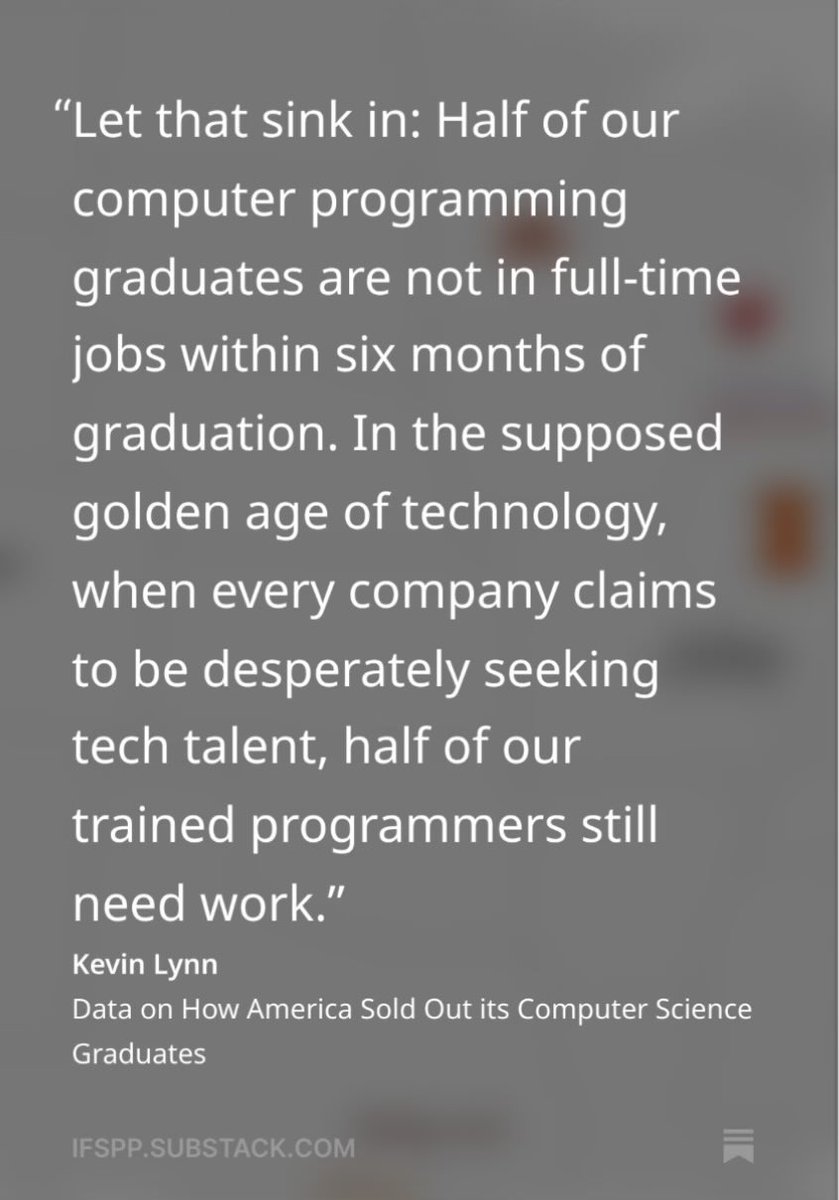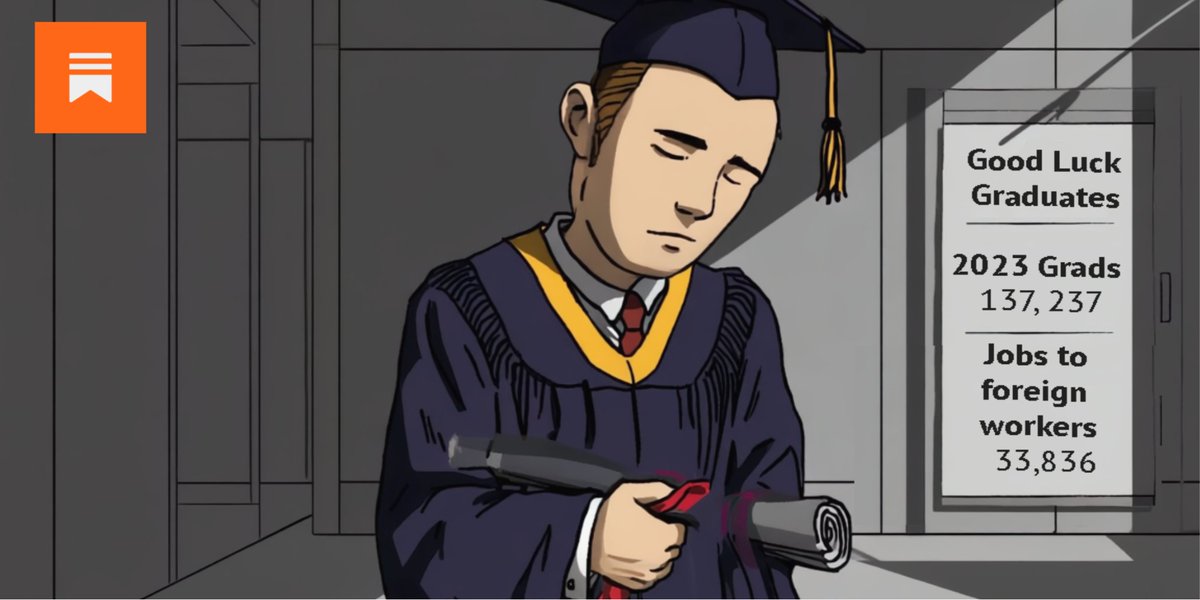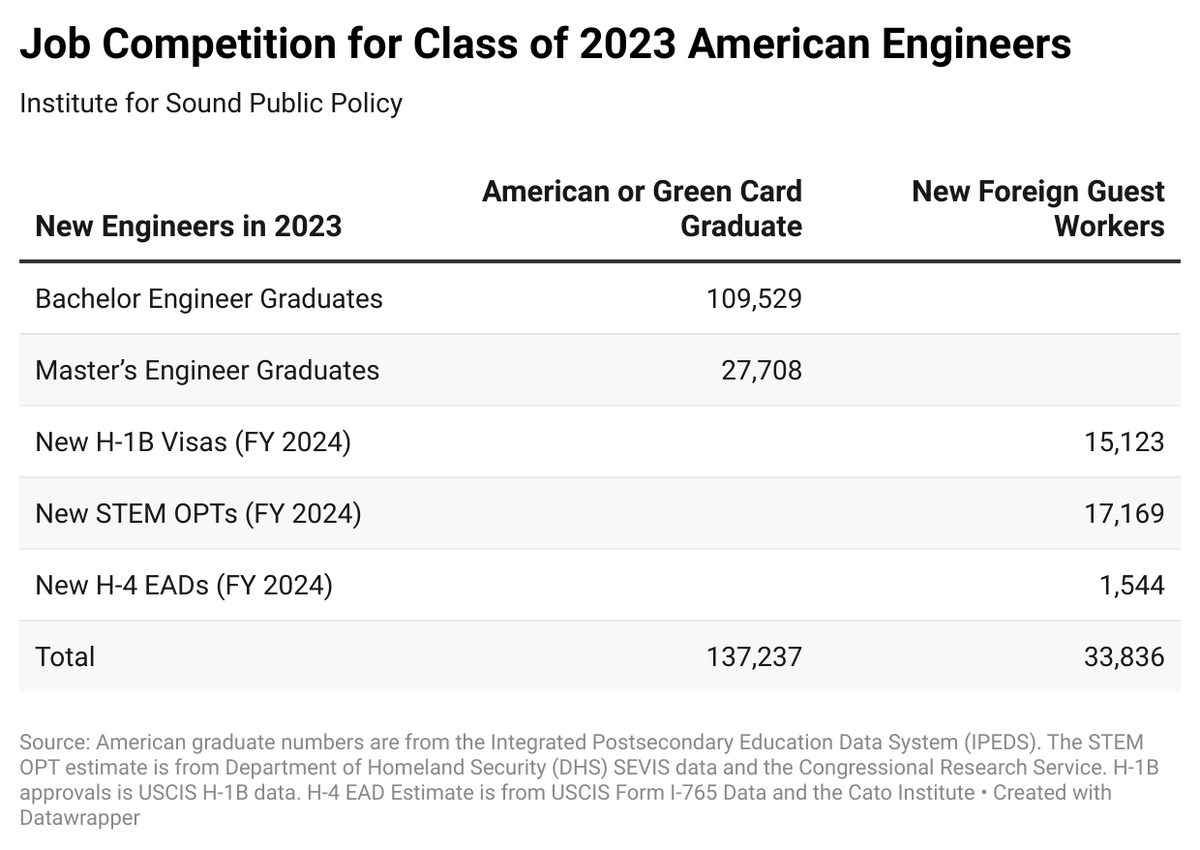If you want to understand how the law lets employers legally pay H‑1B workers less than market wages and how that harms American workers, our latest Substack explains it.
🧵 THREAD:
🧵 THREAD:
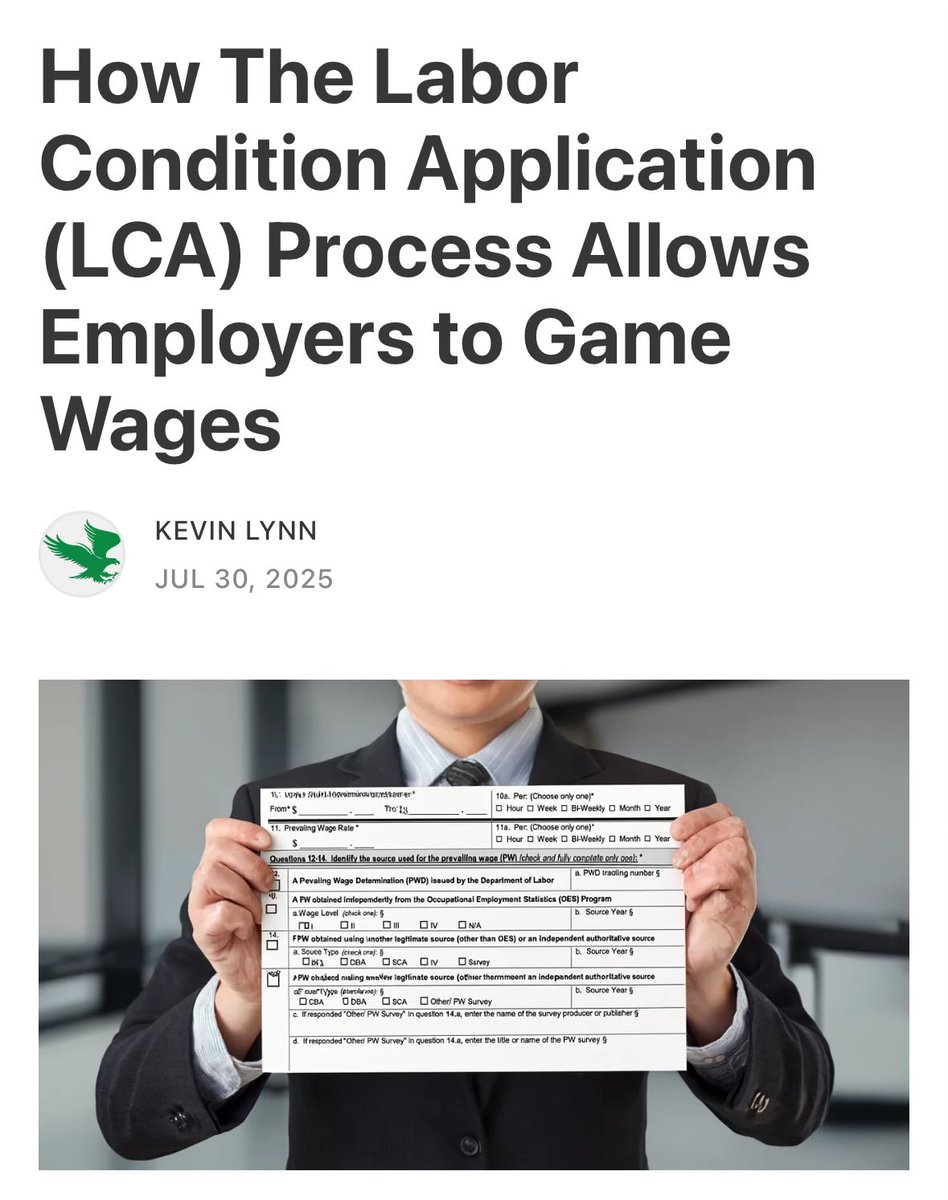
At the heart of this is the Labor Condition Application (LCA), a brief form employers submit to @USDOL before hiring H‑1B workers.
It’s meant to protect local wage standards and keep Americans from being undercut. In practice, it’s a rubber‑stamp process with no real scrutiny.
It’s meant to protect local wage standards and keep Americans from being undercut. In practice, it’s a rubber‑stamp process with no real scrutiny.
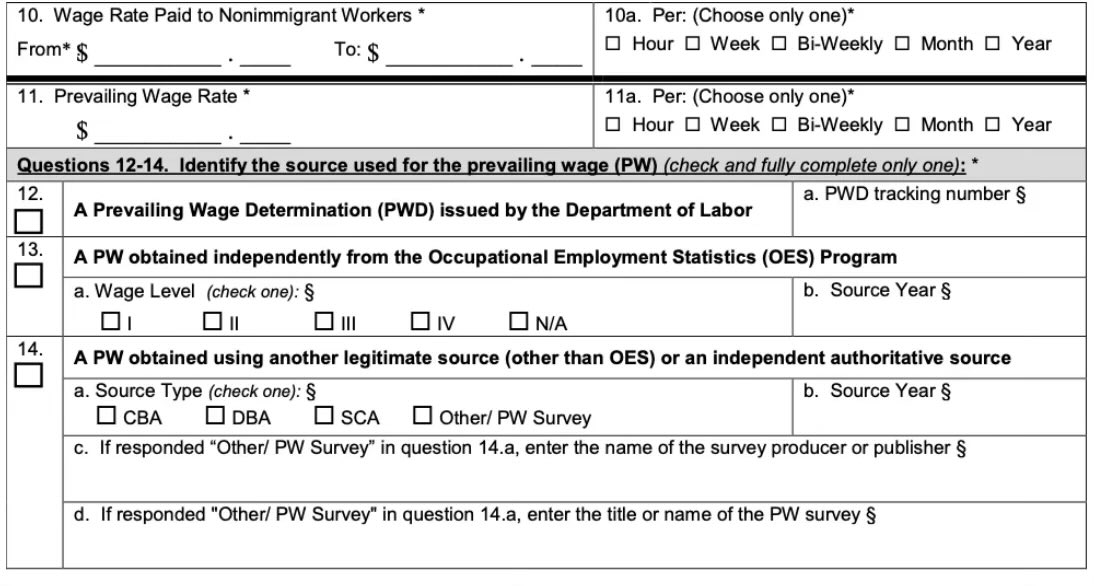
The system relies on employers to truthfully select wage levels based on an H‑1B worker’s skills and experience. But because the DOL can’t verify that information, employers exploit this asymmetry, labeling skilled roles as entry‑level to pay lower wages: 

Employers also game the system by:
• Picking vague or generic job titles that yield a lower prevailing wage (e.g., “business analyst” instead of “data scientist”)
• Using private wage surveys that report lower prevailing wages than the government’s own data
• Picking vague or generic job titles that yield a lower prevailing wage (e.g., “business analyst” instead of “data scientist”)
• Using private wage surveys that report lower prevailing wages than the government’s own data
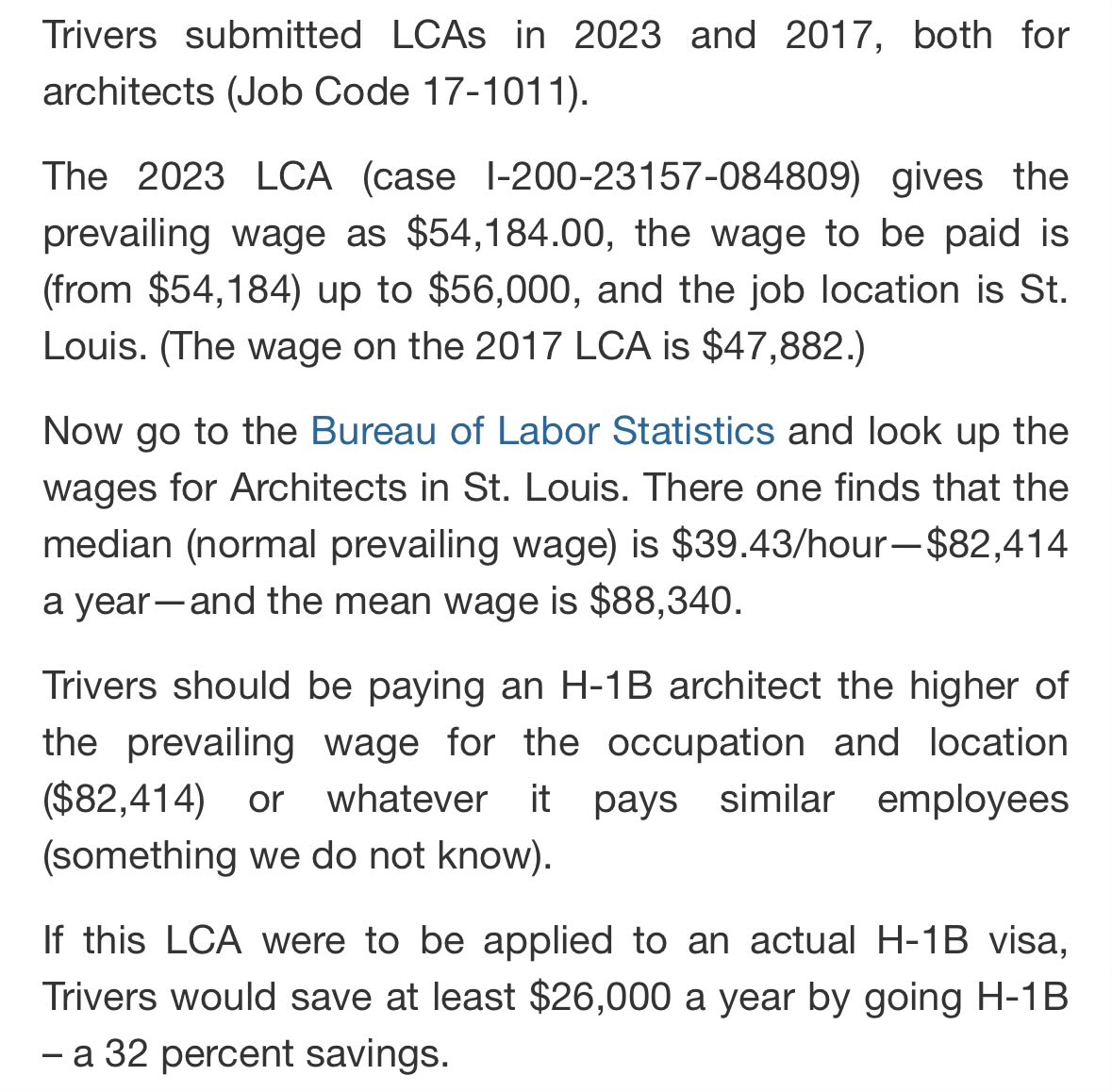
The Department of Labor has just seven days to “certify” an LCA, so they simply check whether the form is filled out correctly; they don’t examine whether the prevailing wage listed is accurate. There are no audits. It’s a rubber-stamp operation!
The result: H‑1B workers often get legally paid far less than equally qualified Americans in the same location.
This isn’t a bug. It’s how Congress wrote the law with the help of special interest lobbyists and immigration lawyers.
This is why employers replace American workers:
This isn’t a bug. It’s how Congress wrote the law with the help of special interest lobbyists and immigration lawyers.
This is why employers replace American workers:
Congress needs to fix the deepest flaws. But the administration isn’t powerless.
Through rulemaking, @USDOL could:
• Raise required wages to the 75th percentile
• Ban cherry‑picked wage surveys
• Demand real documentation & transparency
It’s time for @SecretaryLCD to act!
Through rulemaking, @USDOL could:
• Raise required wages to the 75th percentile
• Ban cherry‑picked wage surveys
• Demand real documentation & transparency
It’s time for @SecretaryLCD to act!
Full Article: ifspp.substack.com/p/how-the-labo…

• • •
Missing some Tweet in this thread? You can try to
force a refresh


